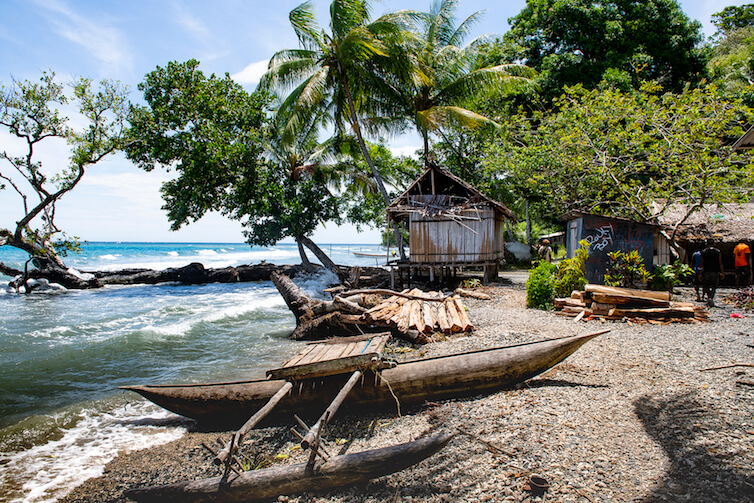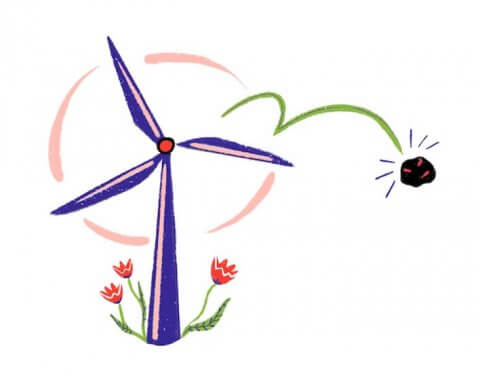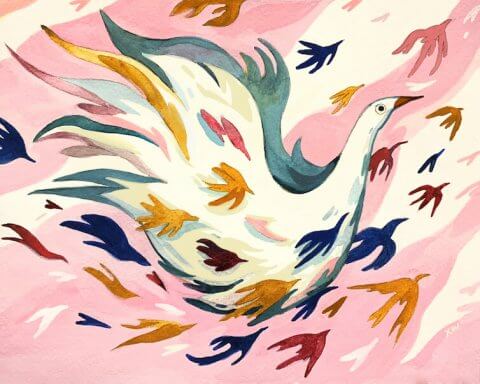Worldwide, Interpol and the United Nations Environment Programme estimate the value of the yearly trade in illegal harvested timber at between US$30 billion and $100 billion, or 10-30% of global wood trade.
About 7.3 million hectares of forest – an area the size of Panama – is lost every year to deforestation, according to the UN’s Food and Agriculture Organization. At the current pace, the Earth’s tropical rainforests will be gone within the next century.
The demand side
An alternative development model is clearly needed for countries like Papua New Guinea (PNG) that struggle with rule of law and corrupt governance, in order to meet UN Sustainable Development Goals and lift Papua New Guineans out of poverty while ensuring environmental integrity.
Much will depend upon China, not only because of its strengthened trade relations via the Belt and Road Initiative but also because it is the destination for PNG’s raw logs. Beibei Yin, the China policy and advocacy senior advisor for Global Witness, says China should extend its own sustainability policies to PNG. China has invested US$350 billion into programs like forest conservation and erosion reduction as well as poverty reduction to protect its own natural resources and adopt a more sustainable and long-term development model. “But China hasn’t broadened its ambitions overseas yet,” Yin says.
Pressure can be brought to bear by China’s trading partners, says Yin, pointing to an EU-China joint study, titled “Feasibility analysis of the incorporation of timber legality requirements into Chinese laws or regulations to promote trade in legal forest products,” which promotes mandatory laws and regulations that would oblige checks on the legality of timber imports. This is a way for China to protect its global trading reputation, says Yin. Unfortunately, “progress has been slow.” (One Chinese company, Nature Home, which manufactures floorings, wooden doors, cabinets, etc., has publicly committed not to buy any SABL-sourced wood, says Yin.)
Asia-Pacific Economic Cooperation (APEC), the 21-nation Pacific Rim association that includes Canada, China and the United States, could play a significant role in promoting sustainability in PNG. For the first time, PNG, which is APEC’s poorest member, hosted the organization’s annual summit this past November in Port Moresby. APEC’s stated priorities include sustainability as well as innovative and inclusive growth, sustainable agriculture in response to climate change and a rules-based multilateral trading system.
As a leading example, Canada has strict laws preventing the import of products illegally sourced. These include the Wild Animal and Plant Protection and Regulation of International and Interprovincial Trade Act. The act makes it illegal to import illegally harvested plants, including wood, so importers do need to know what they are buying or risk potentially millions of dollars in fines, according to the Government of Canada Justice Laws website.
At the vanguard of progressive legislation is a new bill introduced this past February in California titled the California Deforestation-Free Procurement Act. It broadens America’s Lacey Act, which banned trade on illegally sourced wood products in 2008. The Deforestation-Free Procurement Act applies to almost all deforestation commodities such as palm oil, beef, leather and soy, while providing misdemeanor charges for companies that violate it, in addition to sanctions. The act must be passed by the California senate.
Alternative income stream
The village of Labablia, Papua New Guinea. Tallulah Photography.
Kisi Issack’s village of Labablia, an informal collection of wood and grass homes on stilts, sits a coconut’s throw away from the Solomon Sea tideline on the Huon Coast in Morobe Province, Papua New Guinea (PNG). Labablia is isolated from the outside world, accessible only by a picturesque, if bone-shaking, motorboat ride from the port city of Lae, PNG’s second largest metropolis with just over 100,000 people.
Issack, tiny and sinewy, with a weathered and kindly face, shelters in the shade out of the 30 C-plus muggy heat, slacking her thirst with just-opened, sweet, nutty coconut water. Issack is a senior guide and secretary with the Kamiali Wildlife Management Area (KWMA), founded by a Dutch NGO two decades ago. Today, KWMA is a biological research station that attracts scientists and hardy ecotourists (who pay C$400 for a five day visit) study the surrounding lowland tropical forest and the coral reefs as well as monitor leatherback turtles, which come to Lababia’s white sandy beaches every year to lay their eggs. Decreasing in number, leatherbacks, the world’s largest turtle, are classified as vulnerable, due in large part to human consumption of their billiard ball-size eggs.
Issack is proud of the role the villagers of Labablia have come to play as land and oceanic stewards. Not only are they helping protect their ancestral homeland, but the money that they make from tourism helps to support health and education in the community of 800, who live dispersed on thousands of hectares that they own under Papua New Guinea’s system of customary landownership. This alternative income stream is a bulwark against logging companies and palm oil plantations, since it funds vital infrastructure, such as community schools. Other indigenous groups, Issack says, have given up their traditional lands to logging interests in return for money, only to face long-term environmental effects. “Logging is short-term benefit,” she says.
As part of their KWMA stewardship, Issack and her fellow villagers are focusing on initiatives to preserve the sandy beaches where the leatherback turtles lay their eggs. Climate change and rising tides — especially noticeable since 2016 — are eroding beaches. In order to preserve these crucial nesting sites, Issack says there are plans underway to plant kalapulim trees close to the tideline to act as wave breakers and anchor the beach. Preserving the integrity of the land and waterways is a way to honour the ancestors, says Issack, while “conserving it for the future of our children.”
 Read Roberta Staley’s feature: Papua New Guinea on the chopping block
Read Roberta Staley’s feature: Papua New Guinea on the chopping block
Roberta Staley is a magazine editor and writer specializing in medical, science and business reporting.
Photos by Tallulah Photography.








